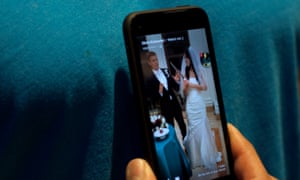- How did the language and selection of images in the coverage create a particular representation of young people?
The word 'riot' was used on all newspapers rather than 'unrest' / 'protest' / 'protests' / 'civil disturbances'
Participants were repeatedly described as 'young people' - these were the feral youth / the 'hoodies' and 'yobs'
This was reinforces with the images on the front page which had participants in hoodies
Also the participants were seen as the devil as fire was used a lot to represent this
Many of the participants convicted of crimes during the crimes were by no means young
- Why does David Buckingham mention Owen Jones and his work Chavs: the demonisation of the working class?
Owen Jones argues the working class has become an object of fear and ridicule, many of the participants in the riots had respectable middle class jobs or from wealthy backgrounds which lead Owen Jones to argue this.
- What is the typical representation of young people – and teenage boys in particular? What did the 2005 IPSOS/MORI survey find?
40% of newspaper articles featuring young people focussed on violence, crime or anti social behaviour
Also 71% can be described as having a negative tone
young people accounted for 1% of sources for interviews and opinions across sample
Women in journalism analysed 7000+ stories which found 72% to be negative. This was 20 times more than positive stories (3.4%).
Over 75% of stories were regarding crime, drugs or police. The great majority were negative (81%).
- How can Stanley Cohen’s work on Moral Panic be linked to the coverage of the riots?
Cohen argues that the media talked up the disturbances and made it into a bigger moral panic than it already is.
Cohen also argued that the media plays a role in deviance amplification in reporting the phenomenon, and in expresing the fear outrage of 'respectable society'
- What elements of the media and popular culture were blamed for the riots?
The elements for media pop culture that blamed the riots were rap music, violent computer games, or reality TV
- How was social media blamed for the riots? What was interesting about the discussion of social media when compared to the Arab Spring in 2011?
The Sun reported that ' THUGS used social network Twitter to orchestrate the Tottenham violence and incite others to join in as they sent messages urging: 'Roll up and loot'.
A similar argument was used in the debates about the 'Arab Spring'
there was discussion about the use of social network in revolutions that took place in countries such as Tunisia, Egypt and Syria. This was interpreted by the western media as being a positive thing.
- The riots generated a huge amount of comment and opinion - both in mainstream and social media. How can the two-step flow theory be linked to the coverage of the riots?
The two step flow diagram can be linked as opinion leaders (politicians/celebrities) get information from newspapers in which is passed down to the public.
- What were the right-wing responses to the causes of the riots?
The right wing responses to the causes for the riots were listed as follows: uneducated, unparented, welfare dependent, brutalised youngsters
- What were the left-wing responses to the causes of the riots?
The right wing responses to the causes for the riots were listed as follows: inequality, poverty, cuts in youth services, rising youth unemployment and removal of Education maintenance.
- What are your OWN views on the main causes of the riots?
The use of technologies was the main causes for the riots in my opinion as thats where social media users created the buzz about the riots. Also the killing of Mark Dugan was the main reason as the killing was seen as unjustified.
- How can capitalism be blamed for the riots? What media theory (from our new/digital media unit) can this be linked to?
The politicians who lie and cheat who leave then sad young men and woman without hope or aspiration
- Were people involved in the riots given a voice in the media to explain their participation?
Only explanations to the riots were seen on YouTube hoever no interview of participants were seen on TV which raises questions as what the media wanted to portray.
- In the Guardian website's investigation into the causes of the riots, they did interview rioters themselves. Read this Guardian article from their Reading the Riots academic research project - what causes are outlined by those involved in the disturbances?
One reason pointed out in the article was opportunism. Another reason was the use of social media which sparked more hype for the riots. One more reason was the injustice that happened with Mark Duggan.
- What is your own opinion on the riots? Do you have sympathy with those involved or do you believe strong prison sentences are the right approach to prevent such events happening in future?
I do have sympathy for the participants of the riots as there main reason was to support Mark Dugan and gain some justice however not as much sympathy as most of the participants were middle class people in respectable jobs.









